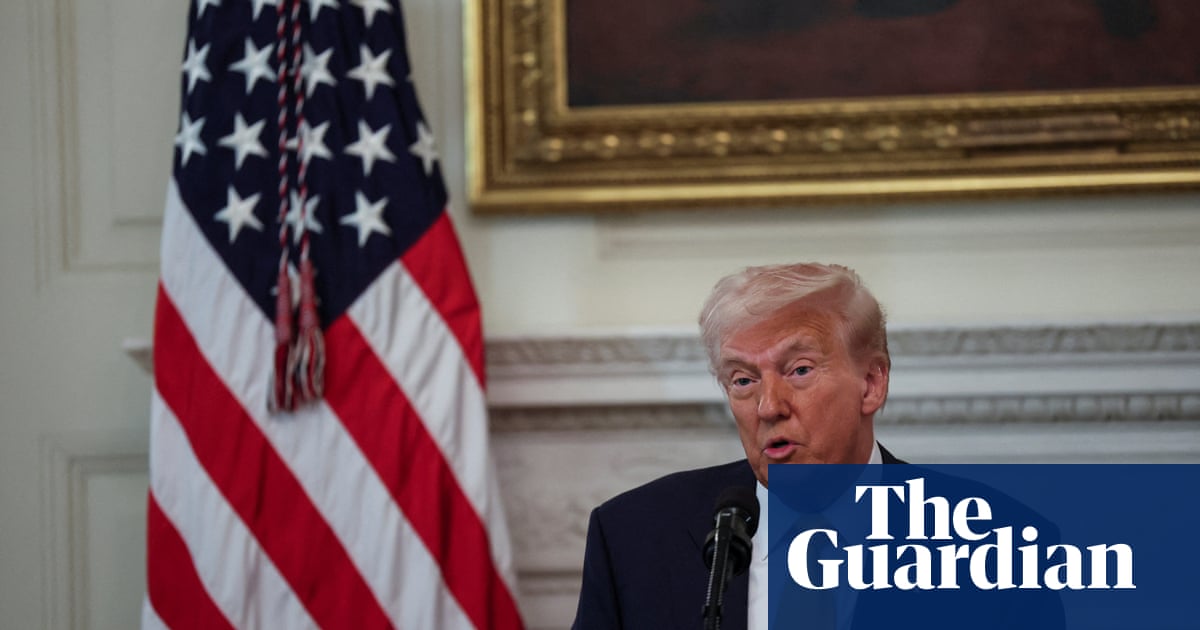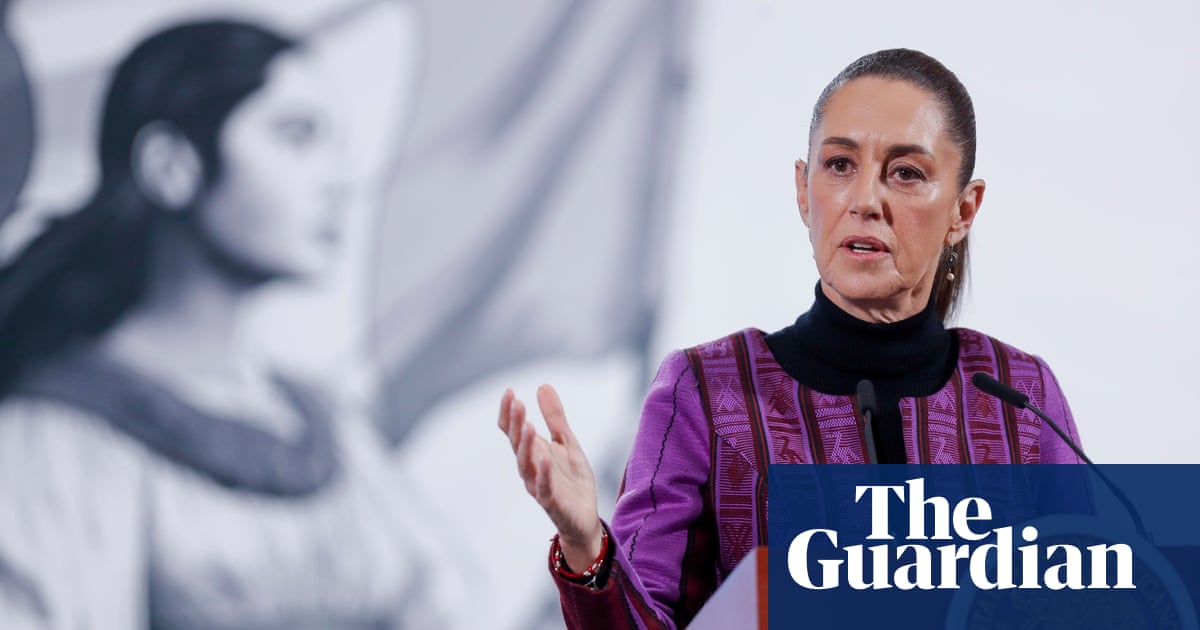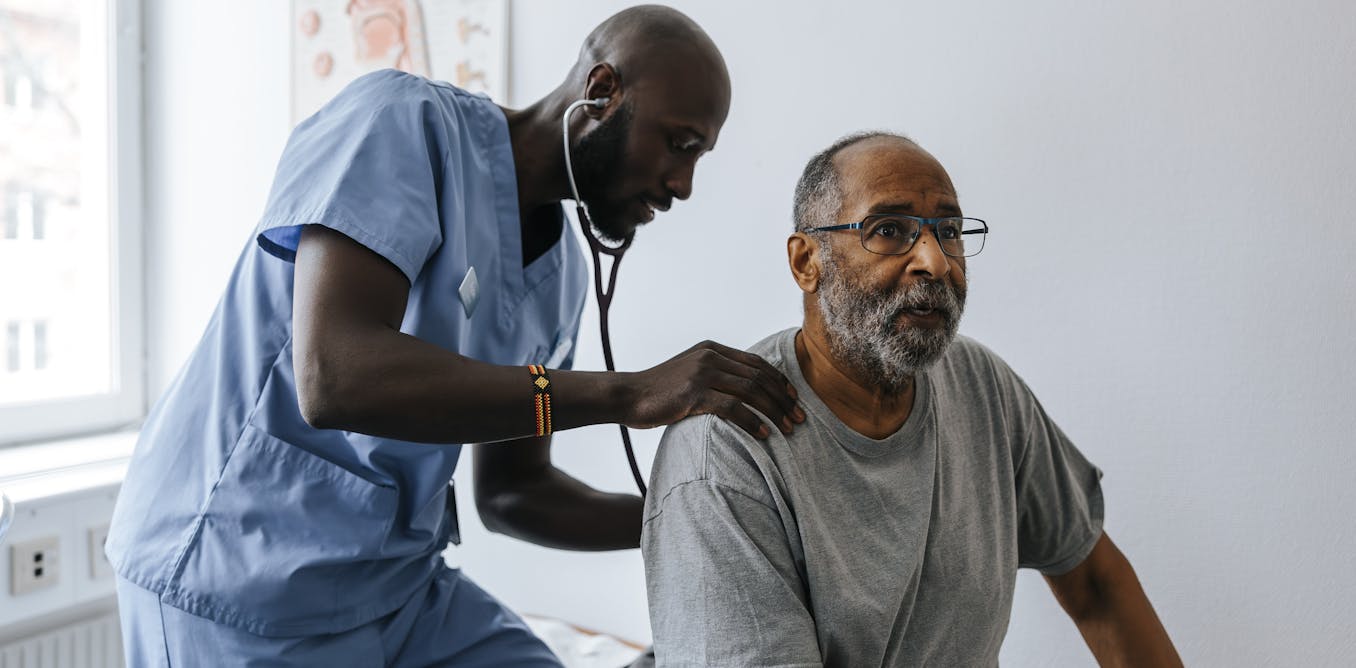When Germany’s chancellor, Olaf Scholz, chose in November to force this weekend’s snap election, it felt like awkward timing. In the United States, Donald Trump had just won a decisive victory and was promising to move fast and break things. With a political storm brewing, was this the right time for the EU’s most important member state to embark on a period of prolonged introspection?
Three tumultuous months later, with German democracy itself in the crosshairs of a hostile Trump administration, Sunday’s poll feels more like a valuable opportunity for an emergency reset. Any federal election carries huge significance beyond Germany’s borders. This poll is distinguished by being the first of a new era – one in which the transatlantic alliance that underpinned Europe’s postwar security can no longer be relied upon. Its outcome will be fundamental to shaping the EU’s response to that new reality, as existential decisions are made over defence spending and protecting Ukraine.
With the centre-right coalition of the Christian Democratic Union and the Christian Social Union comfortably ahead in the polls, the strong likelihood is that Mr Scholz, a Social Democrat, will be replaced as chancellor by Friedrich Merz. Mr Merz has emphasised the need to stand up to bullying from Mr Trump over Ukraine and potential trade tariffs. Increasingly hawkish on Russia and the need to protect the EU’s eastern flank, he would be likely to take a more expansive approach on the European stage than Mr Scholz, whose inward focus exasperated the French president, Emmanuel Macron.
Mr Scholz had his reasons for that. However alarming the international outlook, for many voters Germany’s urgent priorities remain narrowly domestic. A spate of fatal attacks involving migrant suspects has been ruthlessly exploited by the far‑right Alternative für Deutschland (AfD) party, driving immigration to the top of the political agenda.
All mainstream parties remain committed to the traditional firewall excluding the AfD from power (though Mr Merz relied on its votes to pass a recent opposition motion on stricter migration rules). But polls suggest it will achieve a comfortable second place on Sunday – a deeply disturbing position of strength for an ethno-nationalist party officially classified as suspected extremist. The party’s growing popularity among under-35 voters, and particularly among young men, is ominous.
The rise of the far right has been accelerated by prolonged economic stagnation. Post-pandemic, Germany’s business model has been crushed by an end to the era of cheap Russian energy, higher interest rates and falling demand for its exports. Since Covid, almost a quarter of a million manufacturing jobs have been lost, in a country that prided itself on being Europe’s industrial powerhouse. A historic reluctance to borrow to invest – constitutionally enshrined in the 2008 debt brake – has become a liability, stymieing Mr Scholz’s attempts to respond.
A suddenly isolated Europe needs a confident and prospering Germany at its heart. In a fragmented political landscape, it will almost certainly fall to another broad coalition government, led by Mr Merz, to try to deliver this. The AfD will, meanwhile, position itself as a Trumpian alternative-in-waiting, talked up by the likes of Elon Musk and the US vice‑president, JD Vance. Rarely has it been so important that the politics of moderation and consensus should succeed. In the post‑reunification era, the stakes both inside and outside Germany have never felt higher.

 German (DE)
German (DE)  English (US)
English (US)  Spanish (ES)
Spanish (ES)  French (FR)
French (FR)  Hindi (IN)
Hindi (IN)  Italian (IT)
Italian (IT)  Russian (RU)
Russian (RU)  15 hours ago
15 hours ago
























Comments